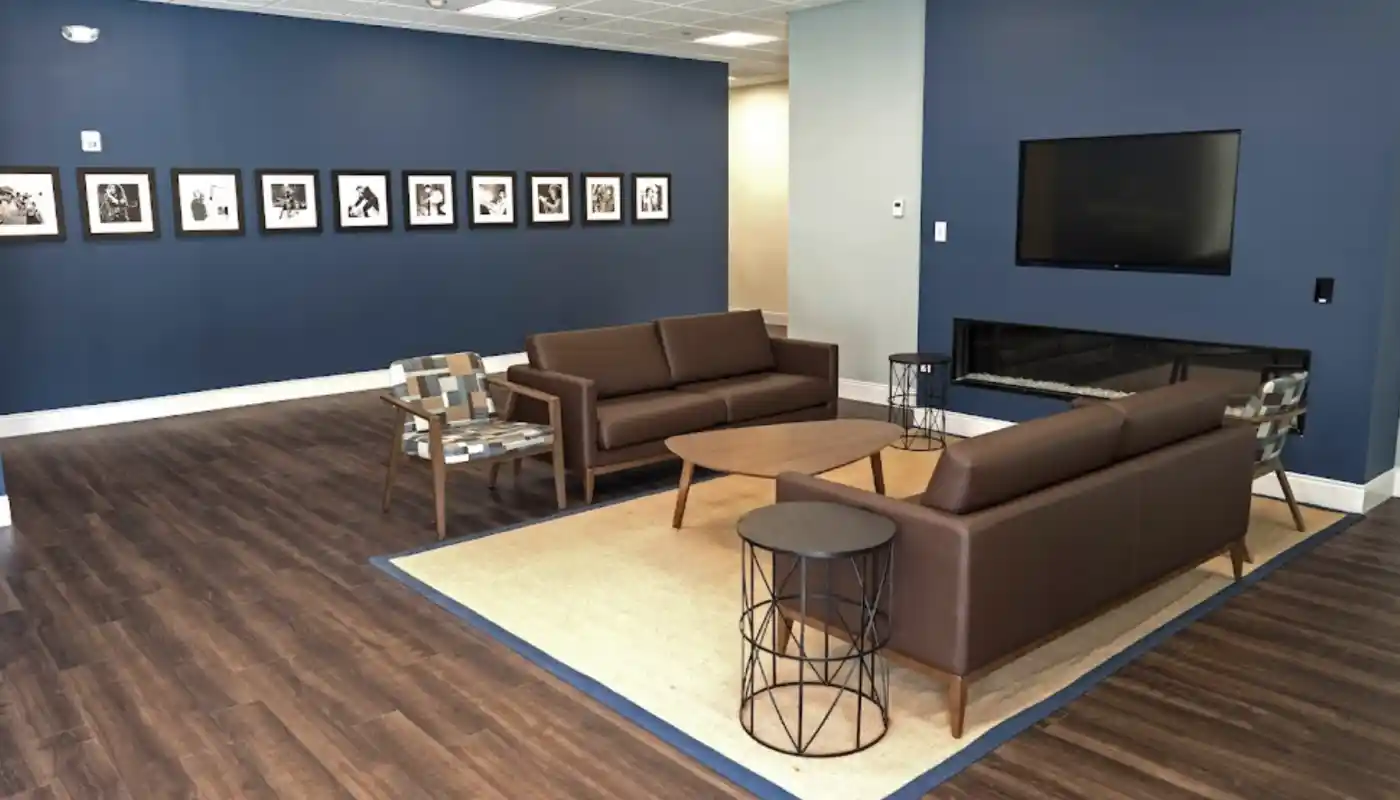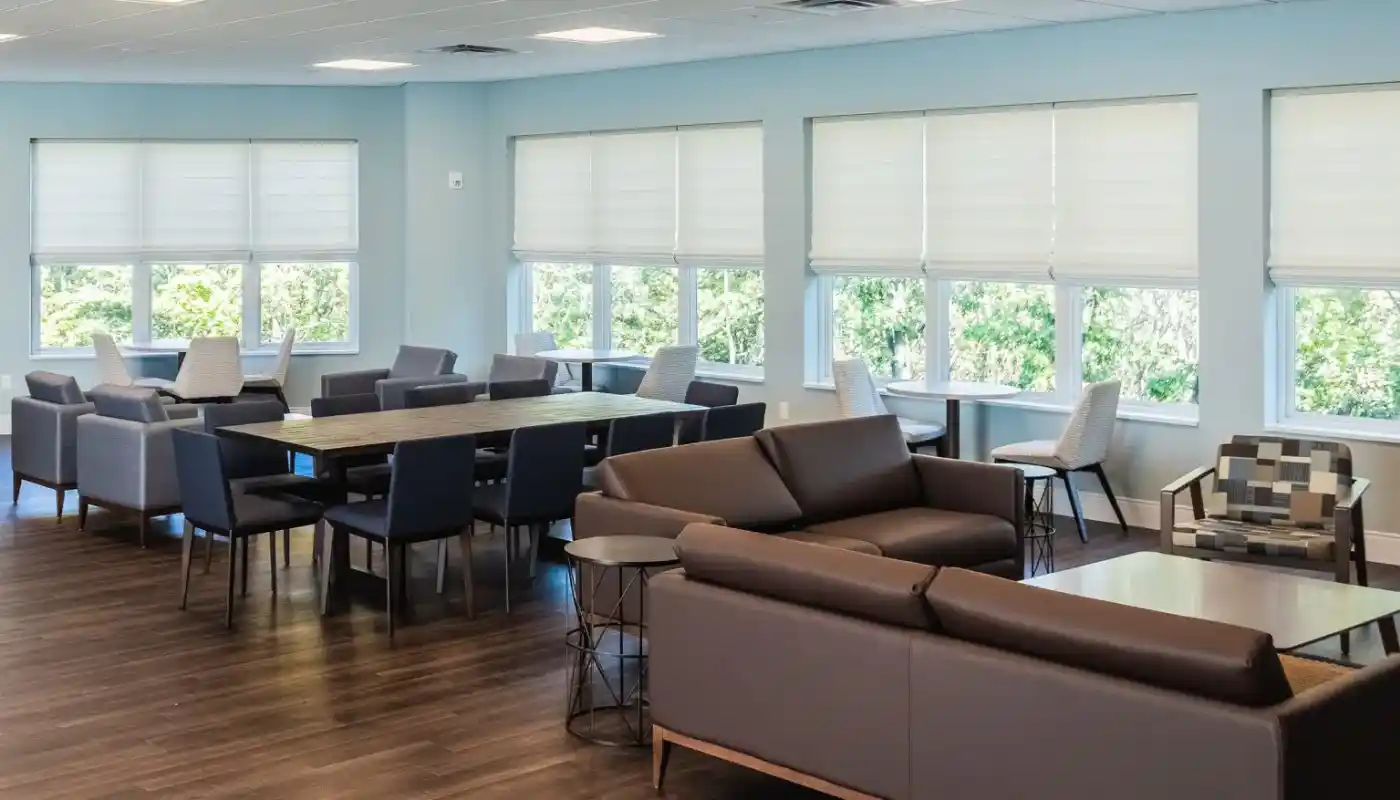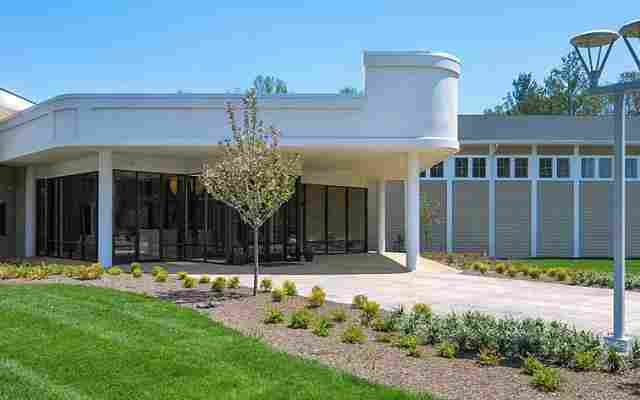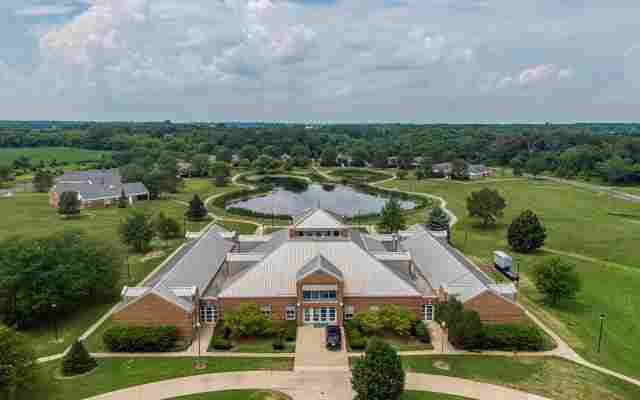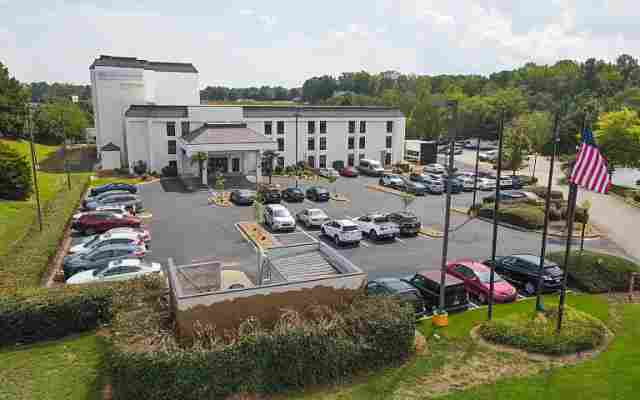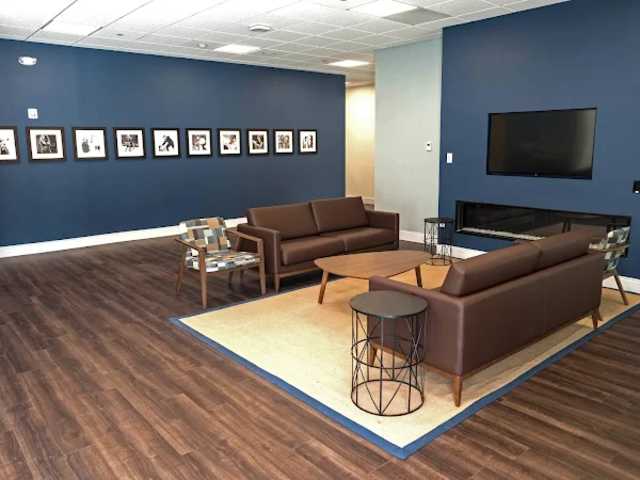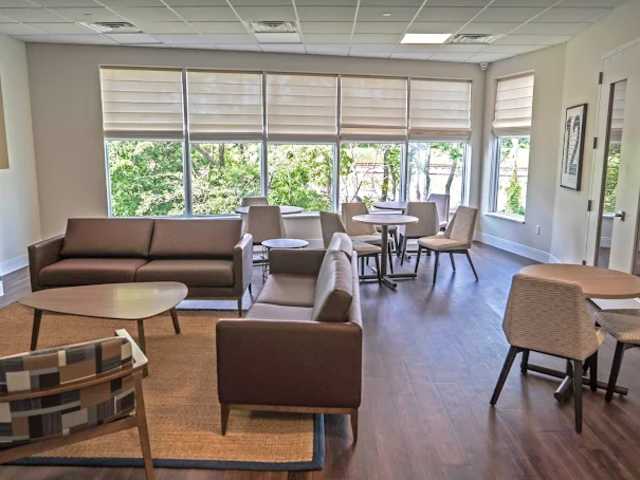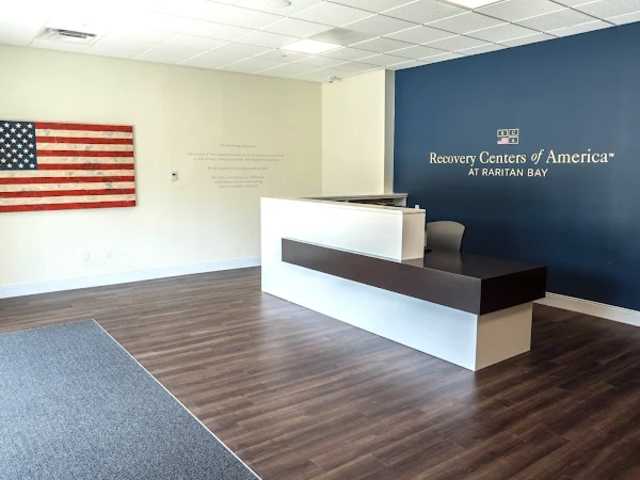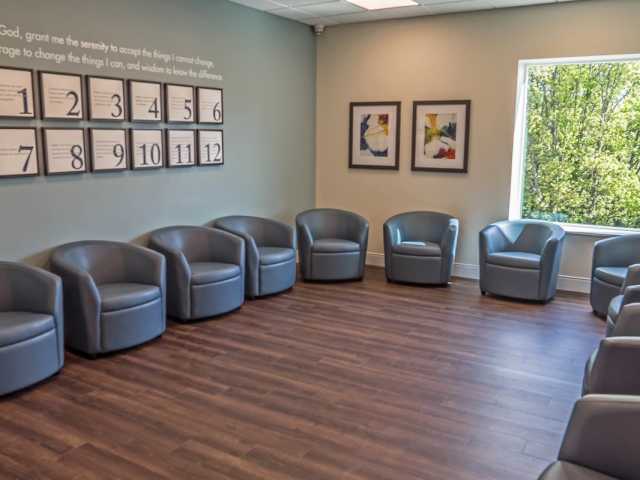
South Amboy, New Jersey, United States
Recovery Centers of America at Raritan Bay
Verified
Verified
This provider’s information has been quality-checked by Recovery.com’s Research Team for accuracy and completeness, including center verification through appropriate third-party organizations.
Joint Commission Accredited
The Joint Commission accreditation is a voluntary, objective process that evaluates and accredits healthcare organizations (like treatment centers) based on performance standards designed to improve quality and safety for patients. To be accredited means the treatment center has been found to meet the Commission's standards for quality and safety in patient care.
Provider's Policy
We are in-network with many insurance providers.
Estimated Cash Pay Rate
The cost listed here ($750/day) is an estimate of the cash pay price. Center pricing can vary based on program and length of stay. Contact the center for more information. Recovery.com strives for price transparency so you can make an informed decision.
Highlights from the Center
Highlights
These highlights are provided by and paid for by the center.
Perfect for Professionals
Trauma-Informed Care
Tech Friendly
Addiction Recovery
About Recovery Centers of America at Raritan Bay
RCA at Raritan Bay delivers clinically proven care with signature compassion, helping clients heal from substance use and co-occurring mental health disorders. They offer a full continuum of services, including medically monitored detox, residential treatment, and an intensive outpatient program (in-person or virtual). Specialized tracks support clients facing gambling addiction, as well as military personnel and first responders seeking targeted care.
Navigate Recovery with 6 Guiding Principles
RCA applies six core tenets they’ve determined essential for every client to achieve sustained recovery. These include medications to reduce cravings and prevent relapse, daily 12-step meetings for peer support, and dialectical behavior therapy (DBT) skills training to manage emotions and cope with challenges. Clients also benefit from family involvement, strong alumni connections after discharge, and care that’s guided by real-time progress tracking to adapt and improve treatment along the way.
Recharge in a Restorative Setting
RCA at Raritan Bay offers clients a modern, tranquil setting to focus on recovery. Semi-private rooms and peaceful outdoor courtyard spaces provide comfort and connection. Clients can enjoy the fitness center, yoga, and basketball for physical wellness and movement. Ping pong, game nights, karaoke, and the library offer space for relaxation and fun. Optional spiritual services and faith-based support help meet each client’s personal needs.
Stay Supported with a Thriving Alumni Network
RCA’s alumni association helps clients stay supported and inspired long after treatment ends. They offer ongoing recovery meetings and sober events like movies, sports, and picnics to bring alumni together for fun, fellowship, and connection. Many events allow alumni to invite family and friends, so their support system can play an active role in recovery.
Read More

Insurance Accepted
Provider's Policy:We are in-network with many insurance providers.
More Recovery Centers of America Locations
Heal & Grow Stronger as a Family
RCA has multiple ways for families to stay connected, receive support, and take part in their loved one’s recovery journey. Family services include educational webinars, in-person and virtual support groups, and family meetings. Key topics like boundaries, family dynamics, and aftercare empower the family unit to prepare for lasting recovery together.
Keep Up with Work or Education
RCA’s WorkFlex program helps clients continue fulfilling responsibilities with education or work while in rehab. Clients are empowered to keep their primary focus on recovery during inpatient treatment, while having the ability to spend up to 3 hours a day maintaining virtual obligations in a quiet environment with WiFi.
Start Fresh & Shame-Free After Relapse
RCA’s Fresh Start Pathway is for clients who have previously been in treatment but need additional support to maintain lasting recovery. Designed to eliminate feelings of shame that may come with a return to use, clients address what may have led to relapse and gain tools and renewed momentum alongside others re-entering treatment.
Overcome Barriers Facing First Responders
The RESCU program at RCA helps first responders and military personnel recover by addressing trauma, drinking culture, job-related fears, and a warrior mindset that may delay seeking help. Group therapy sessions provide peer support, while psychoeducation helps address work-related obstacles. RCA further supports first responders’ families by offering coaching sessions, education, and support groups.

Center Overview
Estimated Cash Pay Rate
Executives
Executive treatment programs typically directly support the needs of people who manage businesses and may provide flexible schedules and office space to allow work during treatment.
Professionals
Busy, high-ranking professionals get the personalized treatment they need with greater accommodations for work, privacy, and outside communication.
Veterans
Patients who completed active military duty receive specialized treatment focused on trauma, grief, loss, and finding a new work-life balance.

Treatment Focus
This center treats primary substance use disorders and co-occurring mental health conditions. Your treatment plan addresses each condition at once with personalized, compassionate care for comprehensive healing.
Treatment
Specializations
Detox
Detox fully and safely removes toxic substances from the body, allowing the next steps in treatment to begin with a clean slate.
Co-Occurring Disorders
A person with multiple mental health diagnoses, such as addiction and depression, has co-occurring disorders also called dual diagnosis.
Flexible technology policies
Centers with flexible technology policies allow professionals to stay in touch with work and give patients a greater sense of connection and normalcy.
Intensive Outpatient Program
In an IOP, patients live at home or a sober living, but attend treatment typically 9-15 hours a week. Most programs include talk therapy, support groups, and other methods.
Veterans
Patients who completed active military duty receive specialized treatment focused on trauma, grief, loss, and finding a new work-life balance.
Residential
In a residential rehab program, patients live onsite, with access to daily treatment and 24-hour care. An average stay is 30-90 days.
Treatment Services
Detox
Detox fully and safely removes toxic substances from the body, allowing the next steps in treatment to begin with a clean slate.
Intensive Outpatient Program
In an IOP, patients live at home or a sober living, but attend treatment typically 9-15 hours a week. Most programs include talk therapy, support groups, and other methods.
Outpatient
During outpatient rehab, patients attend a structured treatment program while continuing to live at home.
Residential
In a residential rehab program, patients live onsite, with access to daily treatment and 24-hour care. An average stay is 30-90 days.
Approaches
Evidence-Based
A combination of scientifically rooted therapies and treatments make up evidence-based care, defined by their measured and proven results.
Family Involvement
Providers involve family in the treatment of their loved one through family therapy, visits, or both–because addiction is a family disease.
Holistic
A non-medicinal, wellness-focused approach that aims to align the mind, body, and spirit for deep and lasting healing.
Twelve Step
Incorporating spirituality, community, and responsibility, 12-Step philosophies prioritize the guidance of a Higher Power and a continuation of 12-Step practices.
Therapies
Family Therapy
Family therapy addresses group dynamics within a family system, with a focus on improving communication and interrupting unhealthy relationship patterns.
Medication-Assisted Treatment
Combined with behavioral therapy, prescribed medications can enhance treatment by relieving withdrawal symptoms and focus patients on their recovery.
Psychoeducation
This method combines treatment with education, teaching patients about different paths toward recovery. This empowers them to make more effective decisions.
Spiritual Care
Tending to spiritual health helps treatment become more effective, allowing patients to better cope with their emotions and rebuild their spiritual wellbeing.
Twelve Step Facilitation
12-Step groups offer a framework for addiction recovery. Members commit to a higher power, recognize their issues, and support each other in the healing process.
Conditions We Treat
Anxiety
Anxiety is a common mental health condition that can include excessive worry, panic attacks, physical tension, and increased blood pressure.
Codependency
Codependency is a pattern of emotional dependence and controlling behavior. It's most common among people with addicted loved ones.
Depression
Symptoms of depression may include fatigue, a sense of numbness, and loss of interest in activities. This condition can range from mild to severe.
Gambling
Excessive, repetitive gambling causes financial and interpersonal problems. This addiction can interfere with work, friendships, and familial relationships.
Stress
Stress is a natural reaction to challenges, and it can even help you adapt. However, chronic stress can cause physical and mental health issues.
Trauma
Some traumatic events are so disturbing that they cause long-term mental health problems. Those ongoing issues can also be referred to as "trauma."
Substances We Treat
Alcohol
Using alcohol as a coping mechanism, or drinking excessively throughout the week, signals an alcohol use disorder.
Co-Occurring Disorders
A person with multiple mental health diagnoses, such as addiction and depression, has co-occurring disorders also called dual diagnosis.
Drug Addiction
Drug addiction is the excessive and repetitive use of substances, despite harmful consequences to a person's life, health, and relationships.
Aftercare
Experience
Personal Amenities
Amenities
Special Considerations
Flexible technology policies
Centers with flexible technology policies allow professionals to stay in touch with work and give patients a greater sense of connection and normalcy.
First Responders Program
Paramedics, police officers, firefighters, and others join in a specific First Responders program, usually focused on trauma, grief, and work-life balance.
Activities
Professional Staff
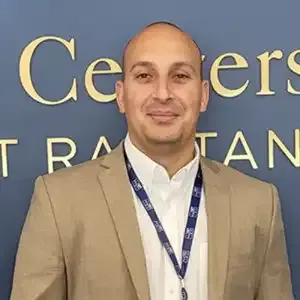
LeoDante Ognibene
Chief Executive Officer RCA at Raritan Bay
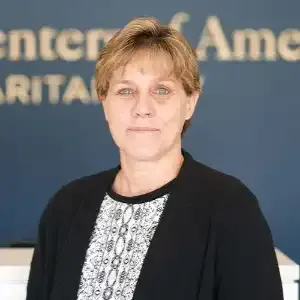
Sharon Cartwright
Clinical Director
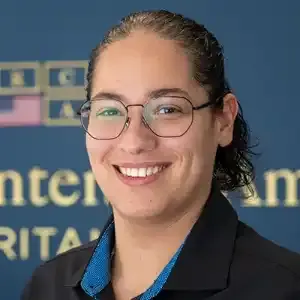
Danielle Rivera
Admissions Director, RCA at Raritan Bay
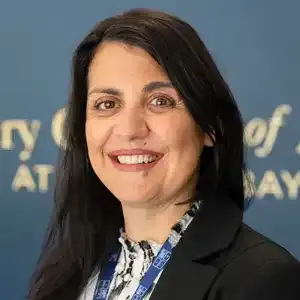
Patricia Pugliese
HR Business Partner, RCA at Raritan Bay
View More Team Members
Learn more about Recovery Centers of America at Raritan Bay
We love hearing about your treatment experience
Help individuals and families seeking treatment by sharing your first-hand experience with this treatment provider. Review Guidelines.











